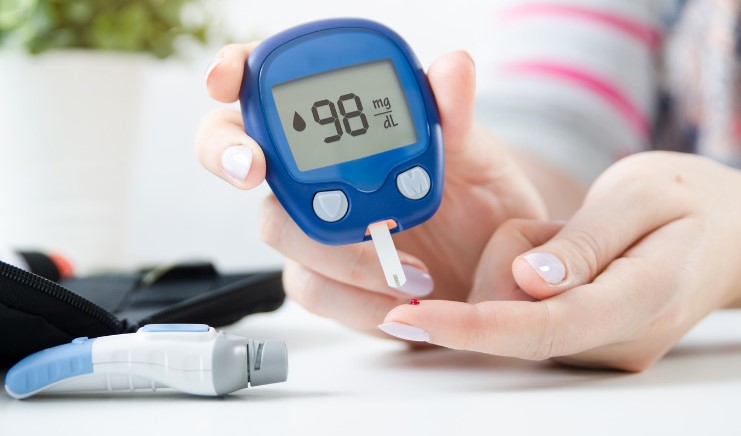Maintaining your blood sugar or glucose levels as much as possible is essential to help avoid or delay serious health problems, especially diabetes. The CDC, or Centres for Disease Control and Prevention, says that 37.3 million people (i.e. 1 in 10) in the USA have diabetes.
This article presents five doctor-recommended strategies to achieve and sustain a healthy blood sugar balance. These strategies include healthy eating habits, exercise, stress management, blood sugar monitoring, and medications.
In addition to a healthy lifestyle and glucose monitoring, medicines such as Mounjaro 2.5 mg tablets are very effective in managing blood glucose balance.
What Is the Role of Doctors in Blood Glucose Management?
Doctors play an essential role in blood glucose management. People having diabetes or an issue managing blood sugar levels must see an endocrinologist (a doctor who specializes in endocrinology, which is the study of hormones in your body). The hormone insulin manages blood sugar (glucose) levels.
Doctors begin the management of glucose by providing a personalized approach in the following steps:
- They accurately diagnose the individual risk factors for personalized treatment.
- They monitor the glucose level and prescribe personalized medication.
- They suggest personalized lifestyle modifications to manage blood glucose.
- Regular checkups and supervision prevent the worsening of the disease.
Here Are the 5 Strategies Recommended by Doctors for Blood Glucose Balance
The irregular blood glucose level causes serious health issues like heart disease, vision loss, and kidney disease. Professional health practitioners recommend the following strategies to maintain a healthy blood sugar level:
Healthy Eating Habits
A nutritionist assists you in creating a healthy food plan to maintain blood sugar levels. The strategy assists in managing your weight, blood sugar (commonly known as glucose), and risk factors for diabetes, heart disease, and kidney disease. You need to add the following foods to your diet:
Nutritious carbohydrates
Sugars and carbohydrates decompose during digestion to produce blood glucose. Starches and sugars are called complex and simple carbs, respectively. Concentrate on wholesome carbs, such as:
- Fruits & vegetables
- Whole grains
- Beans and peas are examples of legumes.
- Dairy goods with low fat, such as milk and cheese.
- Avoid foods and beverages with extra fats, sweets, or sodium and less healthful carbs.
Fiber-rich Foods
All plant food components your body cannot digest or absorb are considered dietary fiber. Fiber helps manage blood sugar levels and moderates how your body digests food. Fiber-rich foods include:
- Almond & Oats
- Broccoli
- Blackberries
- Black beans
- Whole-wheat pasta
Foods to avoid:
- Saturable fats: Clear dairy foods with high-fat content and animal proteins like butter, beef, and bacon. Keep palm kernel and coconut oils to a minimum.
- Trans fat: Avoid trans fats, which are present in processed food to maintain blood sugar level in your body.
- Cholesterol: Avoid the sources of cholesterol (fat like substance) such as dairy products, animal proteins, eggs, liver, and meats.
- Sodium: Limit your sodium consumption to 2,300 mg per day. If you have high blood pressure, your doctor could advise you to lower your goals.
Regular Physical Activity
Doing physical exercises helps you manage your blood sugar level and diabetes by increasing your insulin sensitivity. The insulin hormone enables your cells to use blood sugar as fuel.
Additionally, exercise lowers your risk of high cholesterol and developing heart disease while assisting with blood and sugar regulation.
The CDC says that 46.9% of adults (above18 age) do enough aerobic (breathing control oxygen amount) exercise. Here are some examples of exercises to manage blood sugar:
- Brisk Walk: It is a regular walk but at a faster pace than the casual walk.
- Dancing: Dancing also helps lower blood sugar levels and maintain a healthy weight.
- Swimming: Swimming also reduces our body weight and prevents diabetes.
- Bicycling: A regular 30-60 minutes of cycling is enough to maintain the sugar level in the blood.
Stress Management
Stress results in harmful behaviors like smoking or poor eating, exacerbating diabetes-related health issues like high blood pressure, heart disease, and obesity. These ailments make it more difficult to control diabetes.
The effects of stress on health and the necessity of stress management is discussed with patients by medical practitioners. They talk to the patient about any pressures they are dealing with and assist them in finding coping mechanisms.
Healthcare providers help their patients normalize the experience by reassuring them that stress is a natural part of life and that there is no shame in experiencing it.
Glucose Monitoring
People with diabetes find that daily blood glucose checks are crucial to managing their condition. If you take insulin, keeping track of your blood glucose levels is even more crucial. Your blood glucose monitoring findings influence your choices for diet, exercise, and medications.
The ways to monitor blood sugar:
- Blood glucose meter: To get a drop of blood, use a lancet to prick the side of your fingertip. The test strip is then injected with the blood. Your blood’s current level of glucose will be shown by the meter.
- Continuous glucose monitoring (CGM): Most CGM systems use a tiny sensor that you place under your skin. The sensor checks the glucose level in the fluids circulating between your body’s cells every few minutes, and it shows fluctuations in your blood blance sugar level day and night.
Medication
There are various groups of medications for type 2 diabetes. The way each type of medication lowers blood sugar varies. A medicine functions by:
- Stimulating the pancreas to make more insulin to lower blood sugar. Pancreas is a gland behind our stomach that releases hormones like insulin for different body functioning.
- Improving the insulin sensitivity of body cells. The insulin sensitivity affects how our body uses blood sugar.
- Restricting the kidneys’ capacity to absorb sugar raises the volume of sugar excreted in the urine.
At the best Canadian online pharmacy, buy these medications at affordable prices.
Conclusion
In summary, maintaining a healthy blood sugar balance is crucial for avoiding diseases like diabetes, heart disease, liver damage, and kidney disease. Glucose balance is maintained by adopting a balanced diet, regular exercise, stress management, routine testing, and medication use.
Successful and customized treatment depends on seeing a doctor or other healthcare provider. There are many diabetes medications available, and they all work by enhancing the effectiveness of insulin and carbohydrate digestion.





